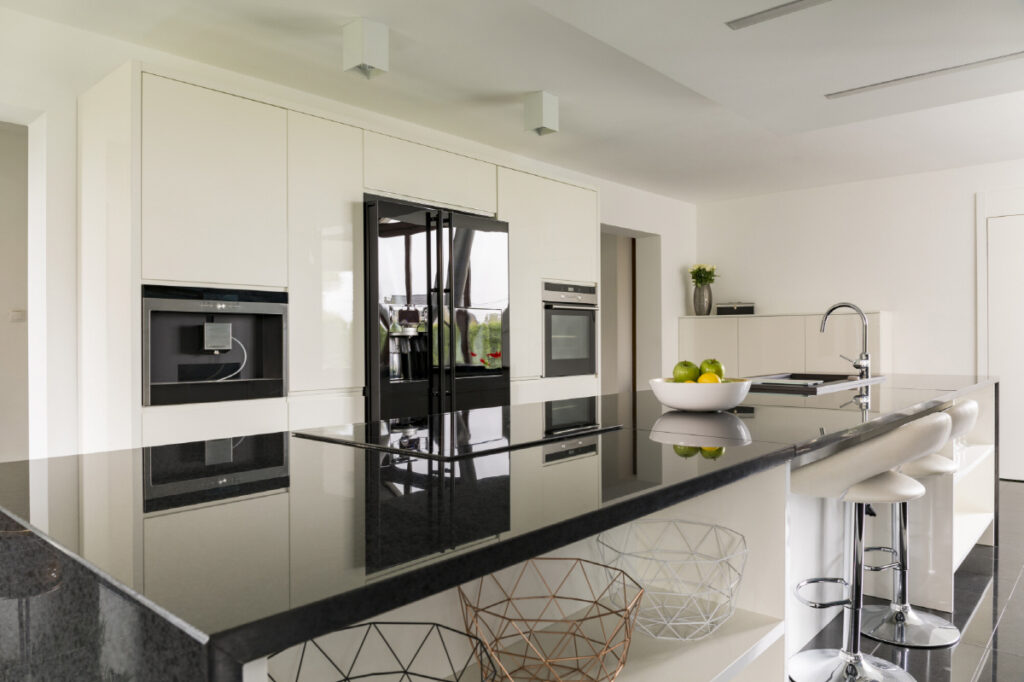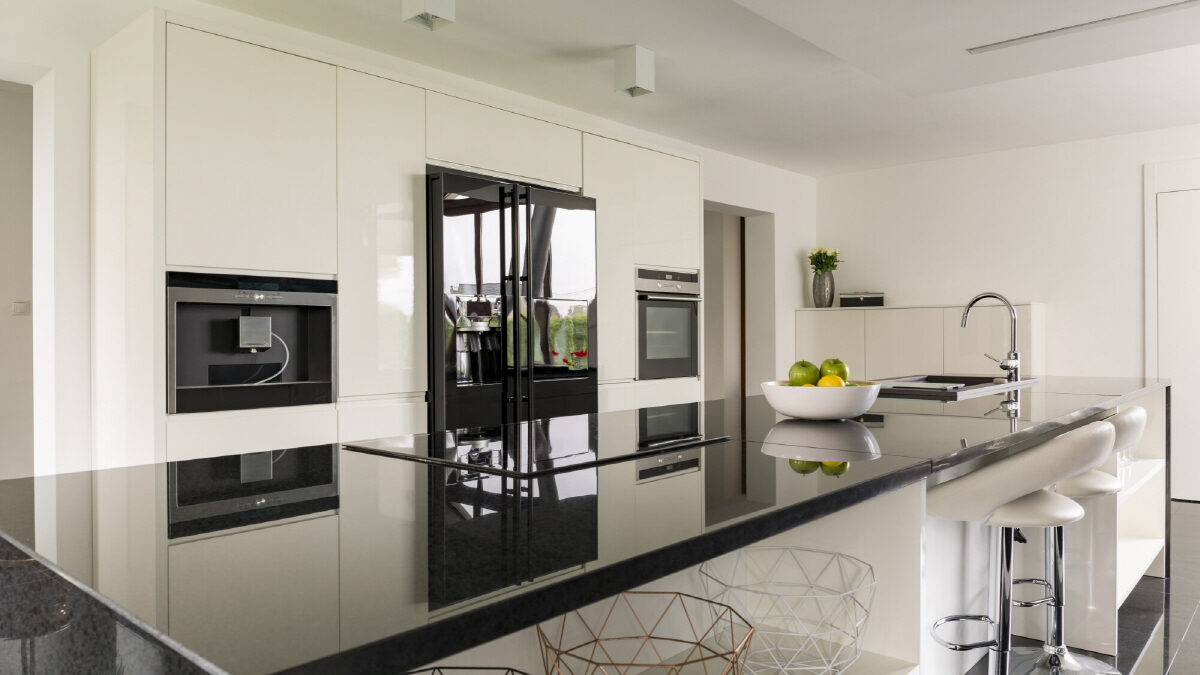
Small changes in your kitchen can make a huge difference in the overall look and feel. If you want to transform your kitchen but don’t have a big budget, consider upgrading the kitchen worktop to stone.
Which stone to choose? Well, there are many kitchen stone countertop types to pick from.
The choice not only influences the aesthetic appeal of the space but also affects durability, maintenance, and overall performance.
Let’s look through the different stone choices below.
Granite
Granite, renowned for its durability and natural beauty, is a stalwart option for kitchen worktops. Mined from quarries worldwide, granite offers a diverse range of colors and patterns. This makes it adaptable to various design schemes.
Its hardness and resistance to scratches and heat make it an excellent choice for a high-traffic kitchen. While granite does require periodic sealing to maintain its stain resistance, the investment is often considered worthwhile for the longevity and timeless elegance it brings to the kitchen.
Marble
Marble, another classic and luxurious option, is favored for its unique veining patterns and timeless aesthetic. However, marble is softer than granite, making it more susceptible to scratches and stains.
It is essential to approach marble worktops with a level of caution, especially concerning acidic substances like citrus and red wine. Despite its maintenance considerations, many homeowners appreciate marble for its unmatched elegance and the character it brings to a kitchen.
Quartz
Quartz has gained immense popularity as a versatile and low-maintenance alternative for kitchen worktops. Composed of natural quartz crystals and resin, quartz worktops offer a wide range of colors and patterns while being non-porous and resistant to stains.
One of the significant advantages of quartz is its uniformity, providing a consistent look without the natural variations found in stones like granite or marble. This engineered stone is also highly durable, making it a practical choice for a busy kitchen stone worktop.
Soapstone
For those seeking an eco-friendly option, consider soapstone. Quarried and often locally sourced, soapstone is a natural stone that develops a beautiful patina over time. It’s softer than granite, but less porous and resistant to stains.
Soapstone is also heat-resistant, making it suitable for kitchens where hot pots and pans are frequently used. Its unique appearance and ability to darken over time contribute to its appeal for those looking for a distinctive and environmentally conscious choice.
Limestone
Limestone, while not as hard as granite or quartz, adds a touch of warmth and sophistication to kitchen spaces. It is often chosen for its muted, earthy tones and natural beauty.
However, like marble, limestone requires regular sealing to prevent staining. While it may not be as resistant to scratches and heat as some other stones, many homeowners appreciate the character that develops over time. You can embrace the natural patina that enhances its charm.
Your Kitchen Worktop Will Appreciate a New Stone Finish
It’s easy to upgrade your kitchen interior and make it look fresh and alive again by using a stone kitchen worktop. There are many kitchen stone countertop colors and types, each with pros and cons.
Before you start your kitchen renovation project, make sure to check out the LX Hausys product catalog to get inspiration for your next project. We have been enhancing living spaces since 1947, for 70 years!

